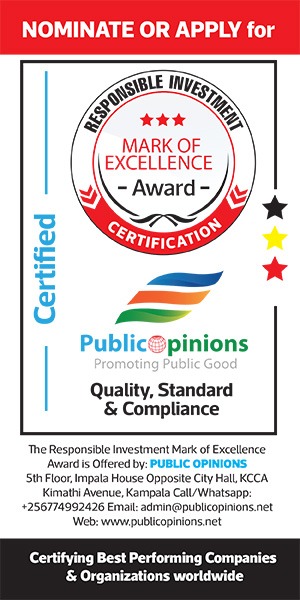USAID Liberia is a winner of the 2016 West Africa Responsible Investment Award and accredited “West Africa Top200 Responsible Investments” in recognition and appreciation of its enormous contribution towards social-economic development of west Africa and contribution towards realisation of the United Nations Sustainable Development Goals in West Africa. Awarded and Accredited by Public Opinions International

U.S. development assistance to Liberia began in 1952 and continued to grow under the Mutual Security Act from 1953 to 1961, providing a total of $167 millionin aid, in today’s dollars.
Since its creation by the U.S. Foreign Assistance Act of 1961, USAID has been working in Liberia on:
- Education
- Health
- Rural and urban development
U.S. assistance stretching over 57 years in Liberia has mostly continued without interruption, with the exception of a few years during turbulence in the 1990s and in 2003.
USAID Assistance during Civil Wars
The USAID program in Liberia responded to the emergency conditions of the civil war that erupted in 1989 with the goal of seeking peace and stability and the installation of a democratic government.
Initially, under the general coordination of United Nations agencies, USAID mainly concentrated on providing humanitarian relief to displaced populations and vulnerable groups. USAID developed a strategy for establishing a community-based reintegration program. The program provided grants to international NGOs and U.N. agencies to establish eight area reintegration and development centers to facilitate community revitalization and re-assimilation.
In September 1998, a violent conflict between government forces and an opposition group led to a six-month evacuation of American USAID staff. Raids by dissidents in Lofa County in April and August 1999, resulted in the loss of vehicles, equipment and 1,200 tons of food aid, and the complete withdrawal of donors and NGOs from the county.
The persistent insecurity in Lofa County forced USAID and other donors to suspend non-humanitarian assistance. During the Charles Taylor regime, USAID resources were directed solely to supporting civil society organizations, particularly for primary health care, agriculture and peace-building.
In 1999, USAID was the largest contributor to Liberia’s highly successful Polio Eradication Program, which vaccinated 528,000 children throughout the country. Unfortunately, work in rural areas was drastically reduced in April 2003, when warring factions began their serious campaign to oust Charles Taylor. The USAID program was inactive for much of 2003.
As fighting neared Monrovia, most of the international community evacuated, including USAID-financed NGOs. During this period, Monrovia experienced a serious humanitarian crisis, as thousands of internally displaced people sought refuge from the violence in housing and business compounds, schools, hospitals and public buildings.
USAID in Post-conflict Liberia
In late 2003, USAID sought to support the Comprehensive Peace Agreement with the objective to transition from emergency assistance to reintegration/recovery and democratization programs.
In early 2004, Congress provided $200 million in International Disaster and Famine Assistance funding, which enabled the United States to take a leadership role in the reconstruction of Liberia. Accomplishments of the reconstruction effort include:
- Demobilization of 14,000 former Armed Forces of Liberia (AFL), and recruiting, vetting and training over 2,000 soldiers for the new AFL.
- Reestablishment of electricity services and streetlights to portions of Monrovia under the Emergency Power Program (EPP)—a Government of Liberia and multi-donor effort.
- Successful staffing and implementation of Governance and Economic Management Assistance Program (GEMAP), resulting in improved financial management systems and increased captured revenue.
- Overall economic and social reintegration support provided to an estimated 25,000 ex-combatants and war-affected persons, with psycho-social counseling and reconciliation resources and activities conducted in over 792 communities in eight counties.
- Consolidation of Liberia’s new democracy by supporting the development of Liberia’s Interim Poverty Reduction Strategy and the organization and policy-level discussions of the Liberia Reconstruction and Development Committee.
- Successful implementation of the Accelerated Learning Program, in which over 1,000 trainers were trained to provide basic education instruction.
- Repatriation of remaining internally displaced persons (IDPs) and the return of 40,000 refugees from neighboring countries.
- Rehabilitation of administrative buildings, roads, schools, bridges and health centers.
USAID in Present Day Liberia
U.S. assistance has evolved through distinct phases since the end of the war. In the immediate post-conflict period (2004-2005), USAID focused efforts and resources on reintegrating ex-combatants into society, facilitating the return of internally displaced persons and refugees, and providing basic social services through NGOs.
In the transitional period (2006-2008), so that the newly found peace could take root, USAID focused on helping the Liberian government rebuild and demonstrate progress in key areas:
- Security
- Justice
- Health
- Education
- Governance
- Infrastructure
- Economic activity
- Agriculture
In 2008, Liberia developed its Poverty Reduction Strategy(link is external) [PDF] and enacted reforms putting it on track for reaching HIPC Completion Point in 2010.
In 2009, USAID shifted its emphasis from recovery to long-term development. USAID programs concentrate on establishing a stable democracy, changing the culture of impunity, systematic corruption and poor governance, closing severe gaps in access to quality education and health care, expanding economic opportunity through agricultural enterprise and natural resources management, and helping to rebuild essential infrastructure and sources of renewable energy.
Awarded and Accredited by:
Public Opinions International
Plot 30 Suite 5, Level 4
Greenland Tower Kampala Road
P.O Box 35297 Kampala-Uganda
Tel: +256701992426
Email: [email protected]
Web: www.pubopinions.org


















